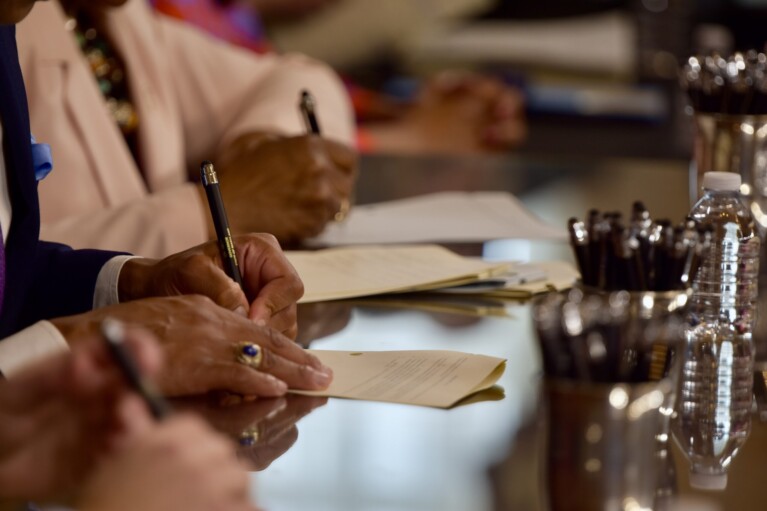A federal grand jury charged nine individuals for a racketeering conspiracy relating to contraband smuggled into the Chesapeake Detention Facility in Baltimore City.
Robert K. Hur, U.S. Attorney for the District of Maryland, announced Wednesday the indictment of correctional officers Darren Parker, Andre Davis and Talaia Youngblood, as well as detainees James Hair, Donte Thomas, Bernard Bey and Andre Webb. Two others, outside facilitators Lynette Carlest and Jasmine Coleman, were also indicted.
Each faces up to 20 years in prison if convicted.
“Corrupt correctional officers endanger the lives of their co-workers and of the detainees entrusted to their care and supervision,” Hur said in a statement.
Maryland’s Department of Public Safety and Correctional Services initiated the investigation, officials said.
“The Department’s mission is to protect its employees, detainees and inmates, and the public,” said Secretary of Public Safety and Correctional Services Robert L. Green in a statement. “Any introduction of contraband or breach of integrity threatens that mission and will not be tolerated, which is precisely why we initiated the investigation and asked the U.S. Attorney to assist.”
The indictment alleges that, since 2016, inmates bribed corrections staff to smuggle cell phones, tobacco, marijuana, synthetic cannabinoids and Suboxone into the prison.
Despite being screened prior to entering the Chesapeake Correctional Facility, the involved staff members were smuggling the materials in on their bodies, through their clothing and in containers of food. The indictment states that they would also go to their cars to grab contraband during breaks, and would sometimes bypass the metal detector in the facility’s main lobby.
According to a news release, the correctional officers would deliver the products to involved inmates directly to their cells, in office spaces shared by officers and detainees, hallways and predetermined “stash” locations like janitorial carts.
Incarcerated individuals assigned to jobs that allowed them to roam throughout the facility were responsible for delivering orders from other detainees to prison staff and distributing the contraband.
The defendant inmates paid correctional officers for the materials through Cash App and sexual favors, prosecutors said.
The inmates involved were reportedly flipping the contraband to their fellow inmates at exorbitant prices. Per the news release, those charged were buying Suboxone strips for $8 a piece and selling them for up to $75 ― a profit margin of more than 800%. They collected their money via Cash App with assistance from the outside facilitators.




 Creative Commons Attribution
Creative Commons Attribution